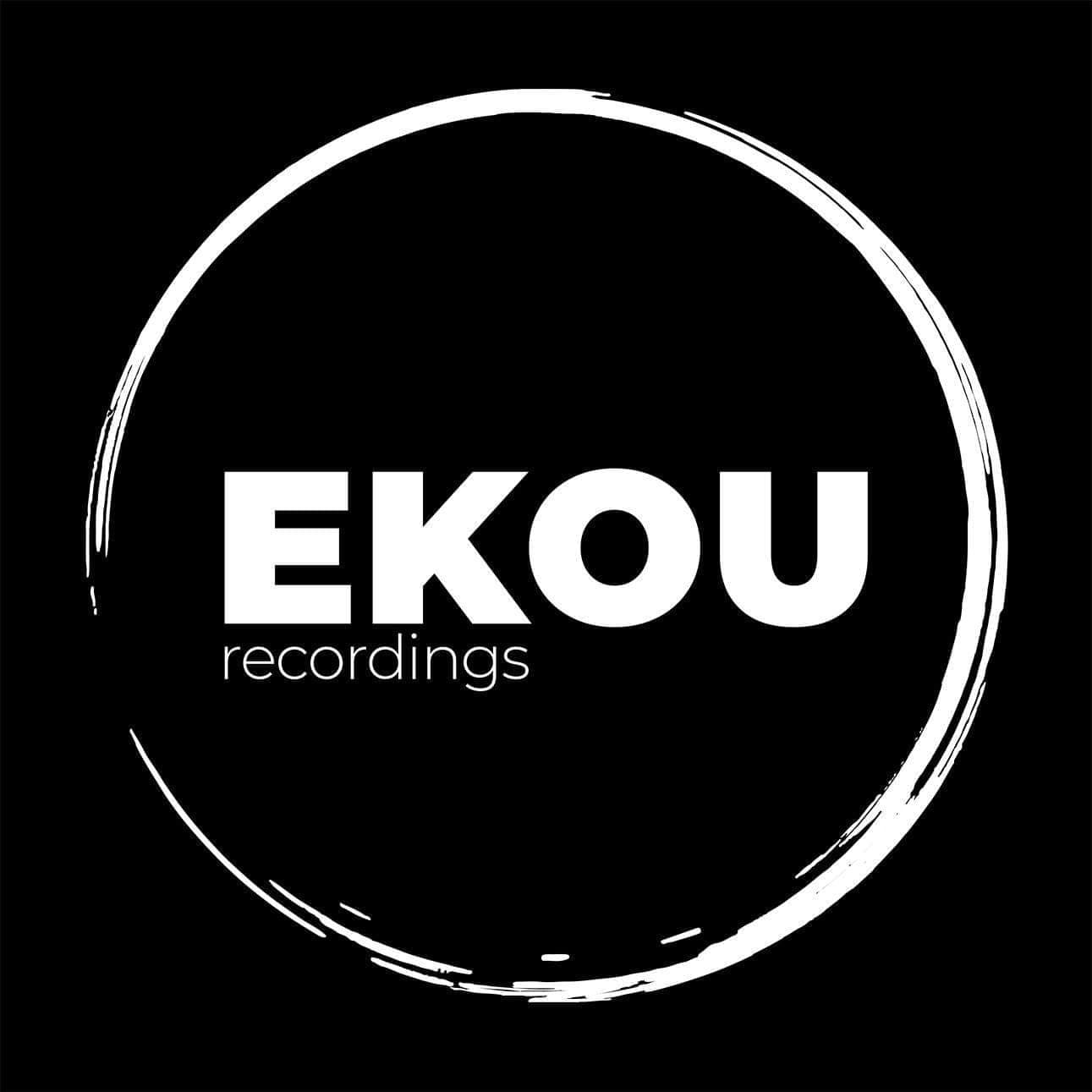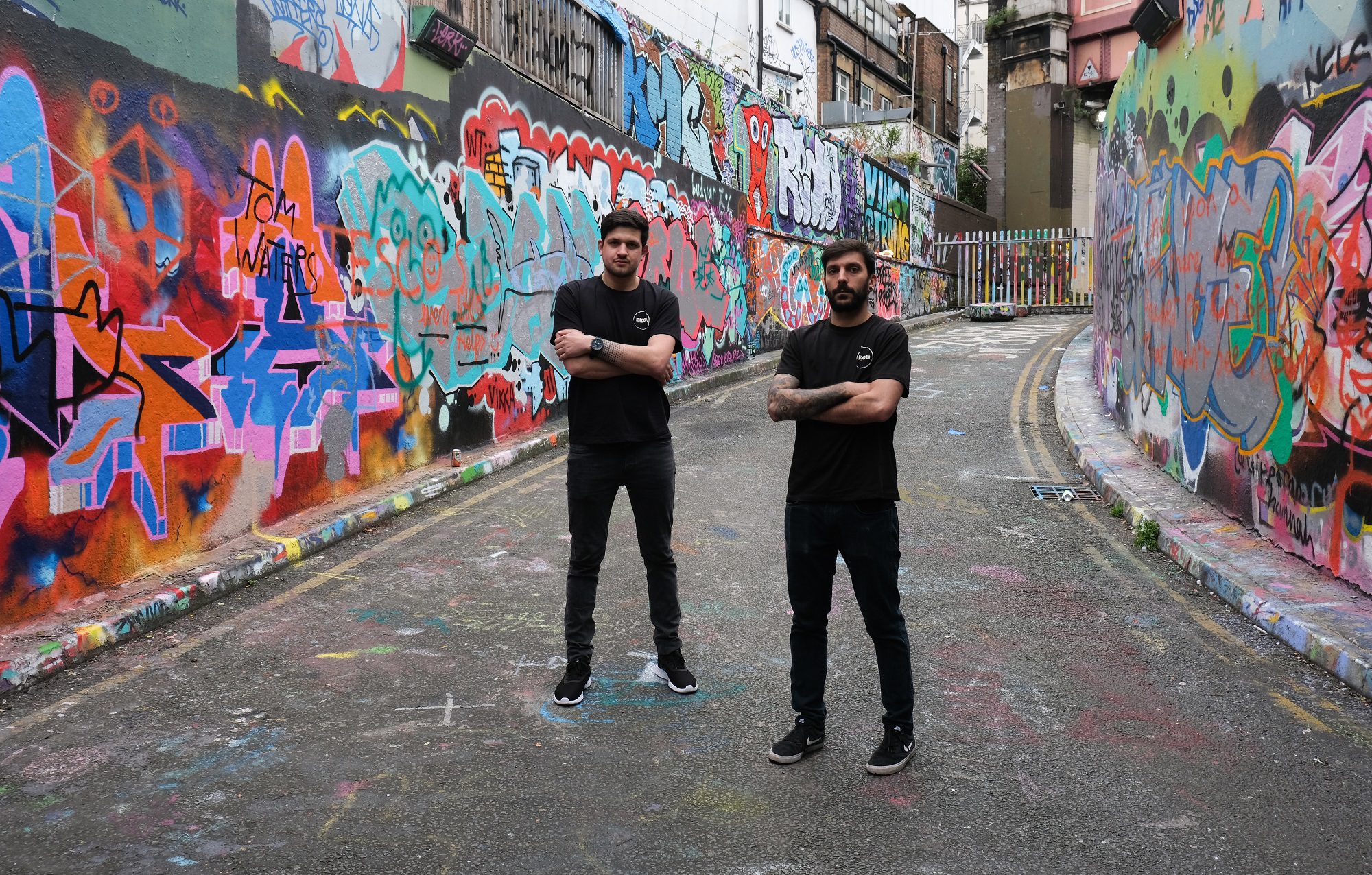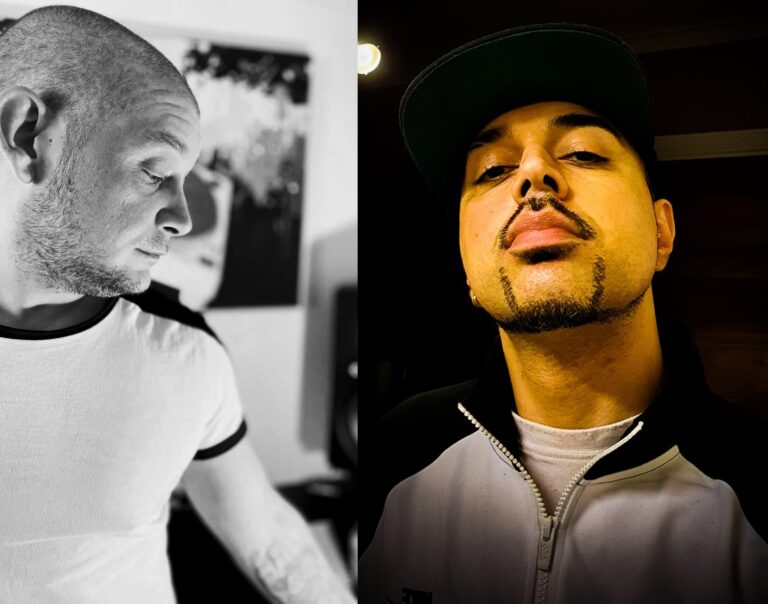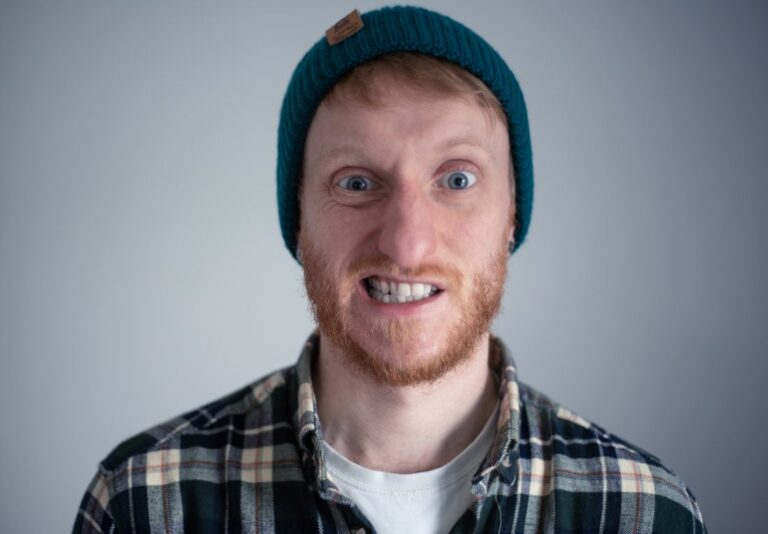The story of Ekou Recordings is a combination of coincidence, determination, and dedication to the deeper side of drum & bass.
After finding himself alone in London, amid all the inner-city pressure, Portugal-native Paulo Sousa started his events promotion company, Ekou.
Wait… An events promoter, with no network? It sounds a bit mad, but Paulo needed a way to meet people and make connections in the drum & bass community. So he went with his gut and took on the pursuit.
Through a last-minute booking change at one of his events, Paulo met Rui (Complice). From there, the idea for a label sparked and they went into partnership at the advent of the coronavirus pandemic. Obviously that presented some challenges, but it didn’t stop the pair from pushing their well-defined sound from day one.
The label brings a fine assortment of established and upcoming artists. Whether it’s hosting the likes of Mako, Volatile Cycle, and Nymfo, or pushing the careers of Molecular, Creatures, A K A, and Subtle Element – Ekou has quickly become a go-to for deep and dark sounds.
With The Voice of Ekou 2 (their second VA remix LP) on the horizon, we decided it was a good time to catch up with Rui and Paulo. We wanted to dig a little deeper into their story, and discover some of the secrets of their successful establishment as a mainstay D&B label.
So take me back to where it all began for you guys – before the label – how did you each get into this music?
Rui: It was around 2004 for me. The first gig I went to was Sub Focus in Porto, and the promoter was called Garagem. They put parties on every two weeks, getting really good names at the time, even though it was a small niche.
What got me into it was not only the music, but also the fact that you could go to a party alone and meet the same faces every couple of weeks, we were all there for the same reason.
I started to go out more and more, I got into DJing, and because of the small community vibe I got to know the promoters (Garagem). So me and my friend I used to DJ with were starting to get bookings – this was around 2007 to 2011, and basically any big name you can think of we were supporting them. There was a boom in drum & bass nationwide, and we were luckily there from the beginning.
Then I moved to London, and all of that disappeared very quickly. Because I was only DJing and I didn’t produce at the time. So when I got here, I studied music technology and started to produce. Then I met Paulo. Basically, he wanted to book the other guy I used to DJ with, but he was in Porto and I was in London, and this party was in London – so it was more simple for me to just play, and that’s how we met.
So how did you find drum & bass, Paulo?
Paulo: I knew the style from games, but I never dug into it until around 2010. Even at the time, my friend and I were into really heavy stuff. Later I found mainstream names like Andy C, Sub Focus, Wilkinson – and then I actually stopped listening for around 5 years.
I came over to London in 2016 with a few friends, and then when they went back to Portugal, I found myself completely alone. So I needed to get myself into a community and start to meet new people. So I got back into drum & bass again, and drum & bass saved the day.
I discovered the deeper side of D&B, and I started to run events – all on my own still. Which is crazy thinking back.
Rui: Well that’s good, because that’s how we met!
So you two met from Paulo trying to book Rui’s friend, but Rui subbed in?
Paulo: Yeah exactly.
And Ekou started as an events promoter?
Paulo: Yep. The very first event we did was at The Steelyard – we booked Neonlight, Mind Vortex, C4C, and Zombie Cats. That was a mad one – I ran the event completely alone. I remember the event started at 10PM, and at midnight I was in Stansted!
You were in Stansted to pick up someone?
Paulo: Yeah to pick up Neonlight and Zombiecats. I just left my girlfriend at the door and said “you’re in charge, I’m gone”.
Those are two massive events, when you’ve got basically no network. How?
Paulo: That was my way to start to meet people in the UK. I just thought, this is what I like to do, so I’m going to give it a shot. I lost loads of money of course, but that was the start of everything.
I started to make contacts, including Rui. I could see Rui has a very fine ear, he knows his shit. So I had the idea to turn Ekou into a label, and invited him to be part of it. From there, we started to take it very seriously, as a job, not just a hobby as it was before.
Rui: It was a risky thing. When we started we were like business partners, before we were fully friends. But we found we could trust each other, and it worked. We both wanted it and we thought if we put the money and time into it, it’s going to be fruitful. As a joke I used to say “it’s 5 years of us being broke” It has been 3 now. So everytime we speak it’s like “bro, only 2 to go, and we’ll be breaking even!”.
So it was a happy coincidence really. He wanted a different DJ, and my friend said to book me, and it was all really last minute.
Serendipitous. So it seems like you’ve got your areas of expertise. Who does what for the label?
Rui: Paulo does more of the ‘bureaucracy’ side of the label I suppose? So for example contacts, accounting, payments, events – and I do more of the talent searching, listening to submissions, dealing with distribution, sorting out premieres and promos… I’m more into creative stuff and then Paulo is more into the business side of things.
We used to share the task of social media. Which was horrible because neither of us are that interested in keeping consistent content going. But now we’ve got our designer – who’s a long time friend of mine – they do social media branding, digital marketing, that sort of thing for us. It’s a blessing because it’s a part of the job we like the least, but it’s a very important one.
In terms of visual identity, do you leave it to the designer, or all collaborate on that?
Rui: Well that’s actually a long answer, because it requires the story behind the label and label name to be told for people to understand.
Well now’s the time – fill us in!
Rui: So Ekou comes from Greek mythology. She was a nymph on earth, and when Zeus would come down to earth to cheat on his wife, Hera, the task given to Ekou by Zeus was to distract his wife. So she would sing to her and talk to her, to cover up what Zeus was going to earth to do. One day, Hera found out and put a curse on Ekou that meant she was only going to be able to repeat the last words that people told her. So that’s where ‘echo’ comes from as we know it in english.
Not only that, Ekou fell in love with Narcissus, who died looking at his reflection in a lake – and the story goes that she died while waiting for him. We thought, there’s a theme – the lake where she died could relate to the deep drum & bass we want to release. So for the visuals we decided to focus on underwater stuff: jellyfish, octopus, close-ups of fish fins, that sort of thing.
A final side of the story is that you can still listen to her voice in some caves – so we thought lakes, caves, and other natural elements would become the common thread of all of our visuals.
Yeah I like what you’ve done with the artwork. So was there a release, or a certain point at which you knew “this is working”?
Paulo: The Voice of Ekou Part 1. We could definitely see a shift for the label at this point.
Rui: Yeah it was our first big release, nine remixes from the likes of Nymfo, Ill Truth, Phentix, Rizzle, Molecular… it boomed. It made us feel like if we push, this can work.
Big names in the deep D&B world indeed. Was it challenging to pull that all together?
Paulo: Definitely, especially because we started planning it pretty much during the first lockdown. And a release like this gets really expensive. I remember we had bills flying in from everywhere, and we were like, damn, how are we going to pay this off?
Rui: But it did pay off! We got very close to breaking even on that release. And I think that is when we started seeing this more as a business too. We began to understand the value of certain names and releases. So we started getting more strategic – for example one month we do a newcomer, the next month we bring in someone more established.
There was more planning, and we had way more people wanting to work with us. Before then, we didn’t get demos at all, and after that release we were like “woah”.
Are you trying to foster a tight roster of artists, names that are synonymous with the label?
Paulo: Yeah we are, but I think this comes with time, as artists become more loyal to us and they trust us more. With A K A, he’s not exclusive, but he gives us priority which is really cool from him, he works really closely with us.
Rui: Sometimes you’ll see a new label start off super strong, but often those people will have had previous labels and connections before. So you’ll see entire rosters shift to another label, because the one who started it was the person who used to do the scouting or management on the previous label.
Paulo: Or a big artist. Sofa Sound is an example, DLR has a massive fan base and group of artists – so when he says “I’m starting a label” he’s got a great foundation to begin with.
Rui: So for us, it’s completely different. As an upcoming label, when we were getting started we always knew that it’s not beneficial for a big artist to release with us, unless there’s some sort of reward involved. Because at the end of the day, they might be wasting tracks on a label that might not reach anyone.
Surely that’s tipped now, and you have a lot to offer as a label?
Rui: Yeah, nowadays we have more people we work with, people who release with us a bit more regularly, and they’re there for us.
Also, what people don’t see is that we have to compete with labels like Critical, it’s the same game. So when kids are making music at a young age, most are seeing Critical and Metalheadz as an end result. And now with it being so easy to get information on YouTube, Pateron, music schools… a young person in a few years can be the next Caracal Project or something. You see Buunshin and you’re like “wow this guy sounds like an absolute pro”. I think the challenging (and fun) part is the ride until you reach the top level.
Are there any big lessons you’ve learned between starting the label and now?
Paulo: Well, on the day that lockdown started, we had a show with IMANU, Mako, Volatile Cycle, Objectiv, Revaux – it was the whole rotations collective from Bristol and us. The deal was we were the investors and they would bring the artists.
About a week before it happened, we were like, man, this whole coronavirus thing is actually kicking off. We didn’t want to have our name associated with it, so we cancelled it. We lost money because it was technically our call. And then we were like, shit, we’ve got this 7 month release schedule planned with people to pay money to.
Rui: Yeah we had to cancel big releases – guys like HLZ and Wingz. It was hard, we were starting to roll. Super hyped, and then suddenly everything shut. I got put on furlough and was only really getting half of my normal income. Paulo, luckily, was still working so he was able to hold the ship, and I could just dedicate pretty much all my time to the label.
So cancelling a big event, plus the financial uncertainty of covid meant you had to cancel forthcoming releases too?
Paulo: Yeah exactly. And I didn’t know how long I’d have a job, no one knew. But after a while, my work promised me I’d keep my job – so I thought, ok then, lets keep going with the label. Then we started to plan The Voice of Ekou.
What are your thoughts on the drum & bass scene in the post-pandemic world?
Rui: You’ve got new names showing up from all over the place, and from the get-go they’re taking it to another level. I think the scene is so healthy right now, you can pick any sub-genre and have a lot to explore. Even though we don’t release certain genres on the label, we can still appreciate them and recognise the quality.
Paulo: A good example is the last album from Gydra – it was sick! And I don’t listen to too much neuro anymore, but I could hear the quality was next level.
After covid, there has been so much new music and new labels. Loads of them are smashing it. I love what Transparent Audio are doing, and Thomas (CTRL) is a very good guy.
Rui: I think we kind of see ourselves in him. He’s got a style that he likes, and he’s trying to be as active as possible in finding new names – he’s also nailing those names he’s finding. They’re the sort of artists that he’ll be able to work with for a long time because they’re that good.
Paulo: We feel him, we can see his hard work.
Rui: Yeah exactly. Sometimes people think having a label is playing music sales in a way. They don’t know the amount of factors that go into putting a release out. When we started to do bigger things and be more consistent, we realised that we need to put in work months in advance.
It’s like a wheel that we can’t stop, because we have plans for months ahead, so the next one can’t be delayed. It’s hard work and you need to want it. If you’re in it for the money, you’re going to have to wait a very long time.
So to an aspiring new label, your advice would be to prioritise music over music sales?
Rui: Exactly. Plus, just keep grinding. It’s frustrating and stressful sometimes because you’re working two jobs really. I’ll get home from work at half-past-one in the morning and I’m replying to emails and listening to demos and stuff. Paulo is the same.
And now you’ve got events to add to your plates too! The first of which is in Bristol this May – are there more events in the pipeline for 2022?
Paulo: There’s a few things in the works but we won’t spill the beans just yet – including London and Europe shows, but it’s all yet to be confirmed.
And we’ve also got The Voice of Ekou Part 2 out soon too. What else is next for the label?
Rui: We have plenty lined up. After The Voice of Ekou, we’ve got an EP from a Bristol-based producer that we’ve wanted to have on the label for a long time. But yeah, lots to come!
Any final big ups?
Paulo: We have to mention Fedi Minikin and A K A – they’re both a big part of the Ekou team, and they help us out. Big up to them for sure.
Big up to Ekou: Facebook / Soundcloud / Instagram
The Voice Of Ekou 2 is out now



